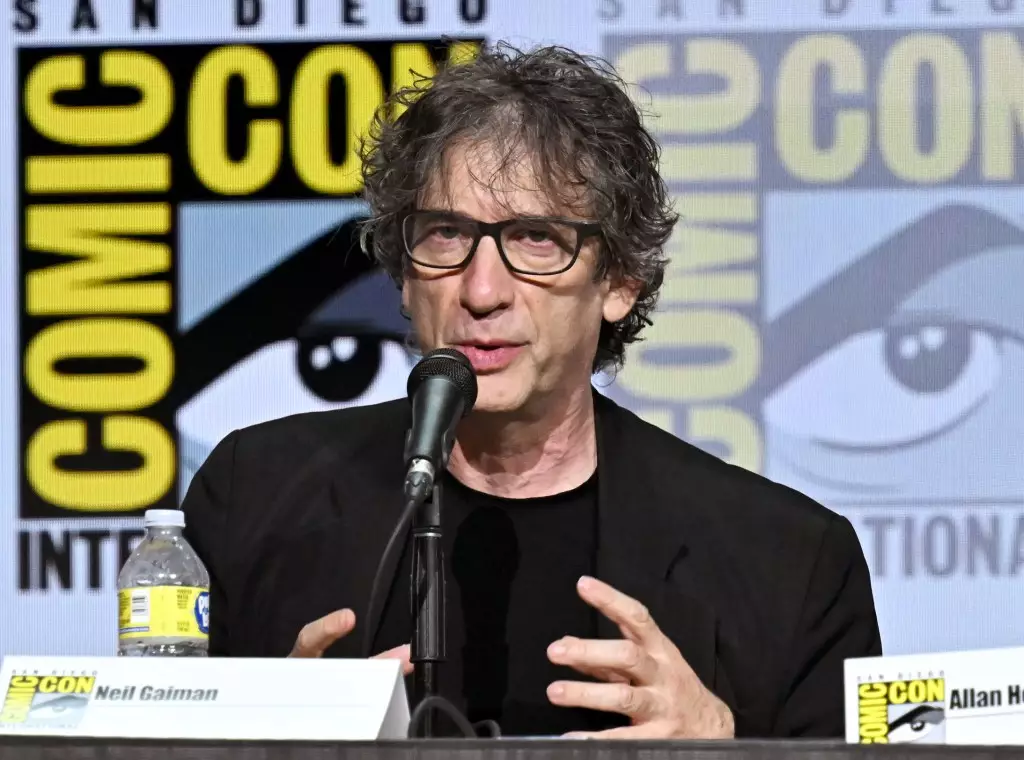In an unprecedented turn of events, Neil Gaiman, renowned for his influential literary contributions and as a purveyor of fantastical narratives through works like “The Sandman” and “Coraline,” has recently found himself at the center of a scandal. Dark Horse Comics publicly severed ties with the author, announcing the cancellation of his anticipated comic series “Anansi Boys” following credible sexual assault allegations. This development marks not only a significant professional setback for Gaiman but also raises questions about accountability and the impact of such allegations on artists and their works.
Allegations and Immediate Response
The allegations surfaced prominently through outlets like Tortoise Media, which reported accounts from four women who detailed their distressing encounters with Gaiman. The timing of these accusations—two coming before the months of July 2024 and two later—brings to the forefront ongoing discussions about power dynamics in creative industries. In response to the claims, Gaiman took to his personal blog to classify the allegations as inconsistent with his experiences, asserting, “I have never engaged in non-consensual sexual activity with anyone.” This statement revealed not only his denial but also a complex internal conflict as he acknowledged past behaviors he deemed as flaws, yet maintained he did not perpetrate assault.
Cascading Consequences on Creative Ventures
The ramifications of these accusations have instantaneously affected Gaiman’s various projects. Initially, “Anansi Boys” was poised to be a significant addition to his comic book oeuvre, yet the cancellation signifies more than just the end of one title—it illustrates a broader industry shift in support for victims and a zero-tolerance stance toward alleged perpetrators. This event is not isolated; other projects linked to Gaiman, such as a feature adaptation of “The Graveyard Book,” are also on hold, reflecting a rising sensitivity to allegations of misconduct.
Additionally, Gaiman’s role in the successful Prime Video adaptation of “Good Omens” has also been reevaluated, leading to the abrupt decision to conclude the series with a single 90-minute episode instead of the anticipated third season. This pivot is reflective of the industry’s current climate, where networks and studios are becoming increasingly cautious regarding how they associate with artists facing serious allegations.
In a poignant admission on his blog, Gaiman reflected on his behavior, candidly acknowledging, “At the same time, as I reflect on my past – and as I re-review everything that actually happened as opposed to what is being alleged – I don’t accept there was any abuse.” This duality showcases a struggle between an individual’s self-perception and societal expectations regarding accountability. Gaiman’s openness about his shortcomings, such as being “emotionally unavailable,” presents a layered perspective on personal responsibility versus the allegations he disputes. The tension in his words encapsulates the complexities of navigating public persona versus private reality in the wake of such charges.
The cancelation of Gaiman’s projects in the wake of these allegations serves as a case study within the film and literature industries about the imperative to hold individuals accountable. The growing movement to amplify victims’ voices and to question the behavior of influential figures is opening dialogues that may reshape the landscape of creativity and authorship long after these events unfold.
The threshold for silence surrounding such incidents is evidently diminishing, suggesting a new era where creators may face harsher scrutiny regarding their conduct. The question arises: how will this shift affect authors like Gaiman, who have defined their careers through deep emotional and thematic engagements with audiences?
As Neil Gaiman navigates this tumultuous period, the future of his creative endeavors remains uncertain. The interplay of artistry, responsibility, and public perception will likely continue to unfold dramatically in the months ahead. While Gaiman asserts his innocence regarding the claims put forth, the industry’s response underscores a willingness to confront issues of consent and power dynamics head-on, signaling a potential turning point in how we engage with and evaluate the narratives crafted by those in positions of influence. The outcome of these allegations may indeed shape not only Gaiman’s legacy but also the broader landscape of literary and visual storytelling for years to come.

